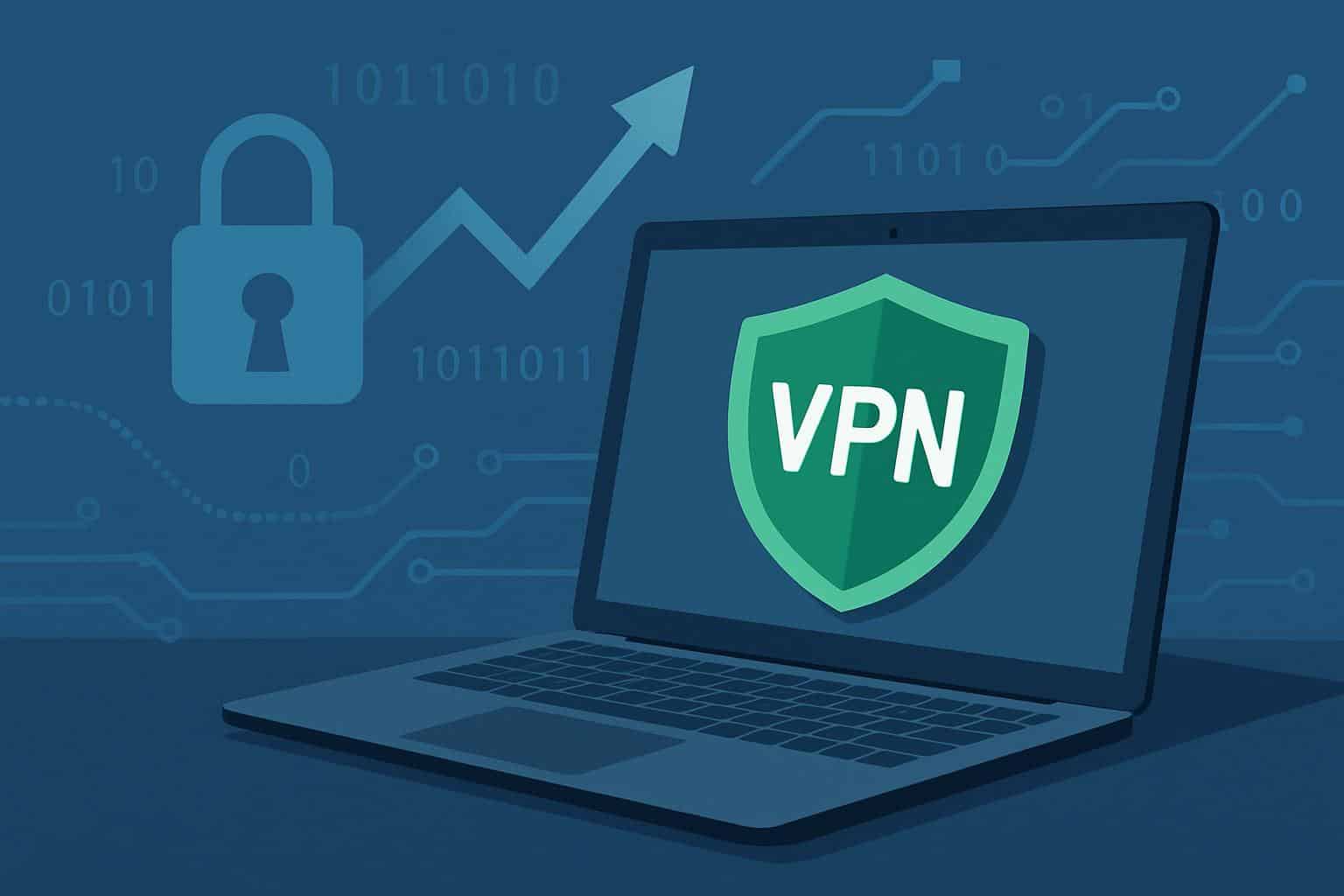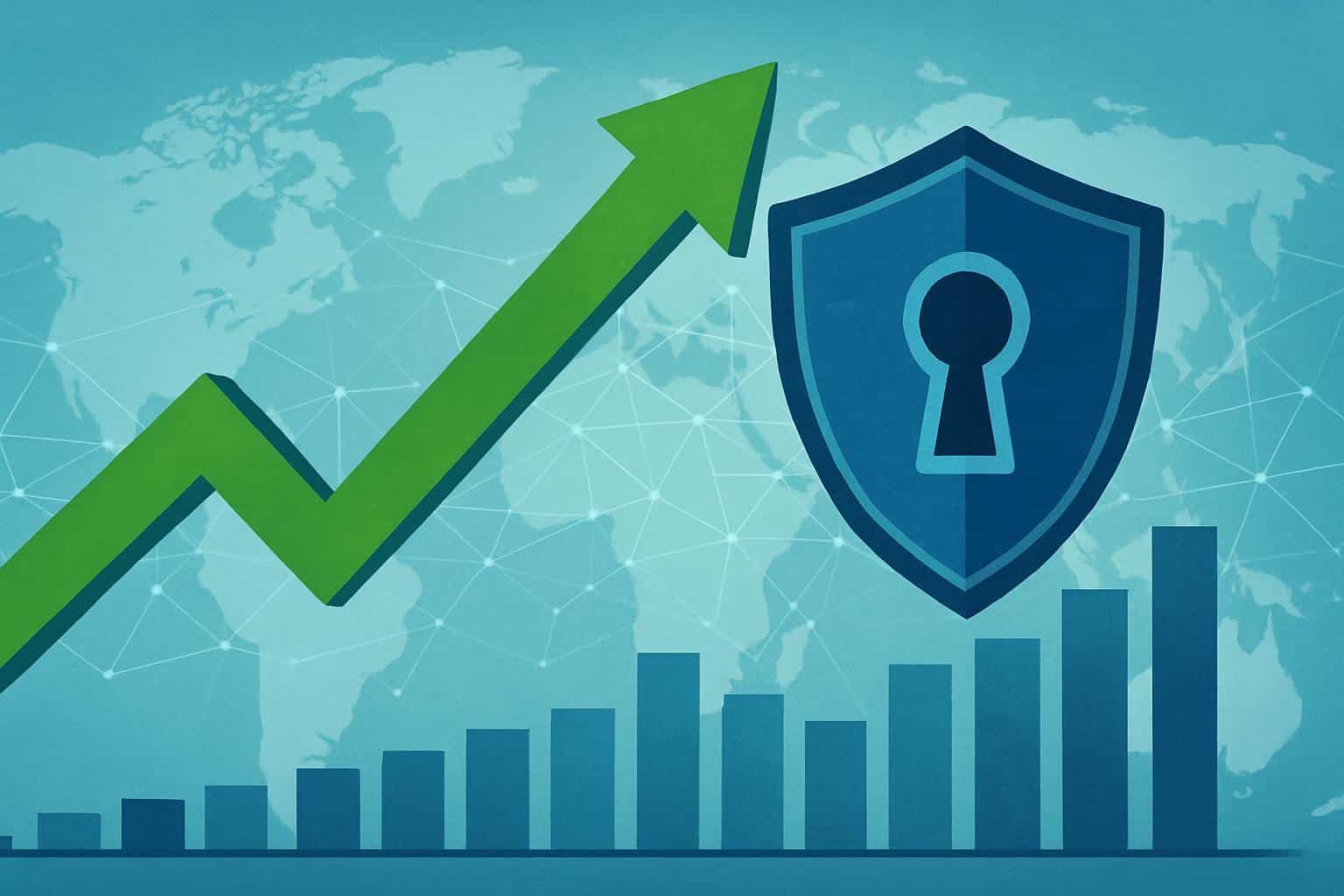Virtual private networks are going from niche to necessity. Analysts say that a multiyear boom is in the offing as work habits, cloud adoption and privacy concerns collide to push VPN usage into the mainstream.
Maximize Market Research estimates the VPN market was $48.7 billion in 2023, and it will almost triple to about $149.7 billion by 2030, at a CAGR of 17.4%. The United States will account for approximately 41% of spending, with the Asia-Pacific region growing fastest as mobile-first economies scale up.
- What’s fueling the boom in global VPN services
- Reason 1: You work outside the office perimeter
- Reason 2: Your apps moved to the cloud — so did your VPN
- Reason 3: You value privacy — and an open internet
- How to choose a VPN wisely for privacy and business
- The bottom line on why VPN adoption is set to accelerate

What’s fueling the boom in global VPN services
The modern network is borderless. Employees work out of coffee shops and spare bedrooms; apps reside in a dozen clouds, and data flows across borders constantly. That growing attack surface makes encrypted, authenticated connections a baseline rather than a “nice to have.”
Businesses are also updating the delivery of VPNs. Rather than stacking gear in a server closet, you can have gateways that live in the cloud and are interconnected for elastic capacity and zero-to-minimal maintenance. Observers at research firms like Gartner and IDC point out that VPNs are increasingly paired with zero trust network access (ZTNA) and secure access service edge (SASE) technologies. The takeaway: as zero trust flourishes, VPNs continue to be a recognizable on-ramp that is compatible with secure connectivity.
People are coming to it for a variety of reasons: the data broker collection being built up about us, ad tracking that is tied to our IP addresses – and the documented surge of internet censorship or shutdowns. Freedom House has documented an ongoing decrease in internet freedom around the world, and watchdog organizations like Top10VPN and NetBlocks have both repeatedly shown how VPN usage surges during social media blocks or network blackouts.
Reason 1: You work outside the office perimeter
Hybrid work is sticking. Polls conducted by Gallup show that most remote-capable workers spend some time in both an office and at home, and many companies are now recruiting fully remote contractors. That flexibility contains risk: unsecured Wi‑Fi, unmanaged devices and reused passwords are presents for attackers.
A business-grade VPN provides an encrypted conduit into corporate resources, and enables IT to enforce access policies. When combined with identity checks and multifactor authentication, it closes a frequent hole: stolen logins. Verizon’s Data Breach Investigations Report has long discovered credentials as the root cause of many intrusions, and IBM Security estimates businesses are being hit with an average breach cost of more than $4 million. A well-run VPN is not a panacea, but it does measurably reduce the surface of exposure from remote access.
For people, the arithmetic is comparable. If sensitive files are part of your airport Wi‑Fi workflow, a VPN minimizes what snoops or contraband hotspots can see and also makes session hijacking and traffic profiling harder.
Reason 2: Your apps moved to the cloud — so did your VPN
As enterprises move email, ERP and developer tooling over to multiple clouds, the old hub-and-spoke network groans under traffic load. Cloud-hosted VPNs can quickly be scaled up for product launches, seasonally high workloads or onboarding new contractors without requiring new hardware, and they can direct traffic directly to cloud regions to lower latency.
End users care too, and when it comes to the services they use every day, end users have fewer choices than the big internet companies do. Contemporary VPN protocols such as WireGuard and IKEv2 generally connect more quickly and save battery on mobile devices compared with legacy options, which makes “always on” protection feasible both over 5G and while traveling. Consumption-based VPN pricing, for small teams, also turns capex into opex — helpful when dealing with tight budgets.

Put simply, the cloud economics which changed how we think about storage and compute have come to secure connectivity. And it reduces the friction to embracing a VPN, whether in an enterprise or at home.
Reason 3: You value privacy — and an open internet
Online activity leaks more about you than most people know. ISPs can deduce browsing habits, advertisers connect identities with IP addresses and data brokers build profiles that trail you around the internet and your devices. A VPN will mask your IP and encrypt traffic between your device and the VPN server, so that intermediaries can see less of what you’re up to — especially on public networks.
VPNs also help people gain access to information when it’s blocked. Market monitors have seen sharp download spikes during government-imposed blocks in locales from South Asia to the Middle East, and civil society groups counsel journalists and activists on how to connect safely during times of unrest. Even in liberal democracies, freshly formulated safety and surveillance laws have led privacy-conscious individuals to subscribe to VPNs like it’s going out of style.
No security tool is perfect. A VPN does not make you anonymous, and it does not provide security against malware or phishing. But used with modern devices, strong passwords and two-factor authentication — that is, the ability to get a second password just as you might use an ATM card along with its PIN — it meaningfully bolsters privacy and resistance.
How to choose a VPN wisely for privacy and business
Things to look out for include:
- A clear, audited no-logs policy
- Independent audits from firms such as Cure53 or Deloitte
- Modern protocols such as WireGuard, OpenVPN and IKEv2
- A proper kill switch that actually works (to block internet access if the VPN drops)
- DNS leak protection and IPv6 leak protection
Good indications include:
- Transparent ownership
- Regular transparency reports
- RAM‑only server infrastructure
For businesses, make sure those include:
- Identity integration (through SAML or OpenID Connect)
- Device posture checks
- Per‑app split tunneling
- Geofenced access
- Detailed logs sent to your SIEM
Make sure the VPN plays nice with ZTNA and SASE projects so you can evolve without ripping and replacing.
The bottom line on why VPN adoption is set to accelerate
The figures all point in one direction: VPN adoption is about to accelerate as hybrid work endures, cloud networks come of age and privacy concerns heighten. If you work from anywhere, depend on cloud apps or just want more control over who sees your online activity, a well-selected VPN will probably become part of your daily kit.

